We are very pleased with the feedback we received after our first conference in april. On this page, we would like to share with you impact stories that originated at the Chance for Science conference.
Navigation:
Ukrainian-German Neonatal Cooperation
Assoc. Prof. Dr. Anastasiya Babintseva (Bukovinian State Medical University, Chernivtsi, Ukraine) & Prof. Dr. Mario Rüdiger (University Hospital Carl Gustav Carus, Dresden, Germany)
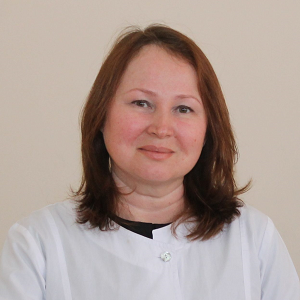
Assoc. Prof. Dr. Anastasiya Babintseva
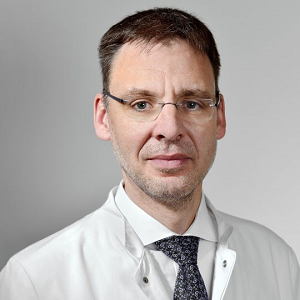
Prof. Dr. Mario Rüdiger
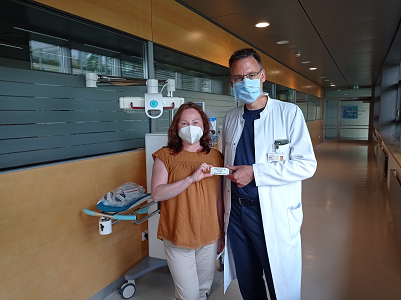
"While presenting at the first "Chance for Science" conference, I met Prof. Dr. Mario Rüdiger, a neonatologist and paediatric intensivist, Head of Division of Neonatology and Paediatric Intensive Care at University Hospital Carl Gustav Carus, Head of Department of Paediatrics at Technische Universität Dresden (TUD), Director of the Saxonian Centre for Feto-Neonatal Health (Dresden, Germany). Dr. Mario Rüdiger is also the founder of the charity fund Deutsche Stiftung Kranke Neugeborene (DSKN), which supports research in the field of neonatal care and psychological support for families with premature infants.
Taking into account the extremely difficult conditions of the neonatal service of Ukraine during the war and the increasing need of medical institutions for modern equipment, Dr. Mario Rüdiger and the charity fund DSKN have purchased and delivered 2 devices for therapeutic hypothermia to newborns and 2 devices for non-invasive ventilation support nCPAP. Therapeutic hypothermia is a modern method of treatment for babies born asphyxiated and is aimed at reducing the risk of post-hypoxic brain damage and further disability. Nasal CPAP makes it possible to provide non-invasive ventilation support to preterm infants in the delivery room, significantly improving lung function and reducing the risk of pathological consequences of invasive interventions. This equipment will operate at the Department of Paediatrics, Neonatology and Perinatal Medicine of Bukovinian State Medical University, in the Chernivtsi Regional Perinatal Centre and the Chernivtsi Municipal Clinical Maternity Hospital No 2.
Further scientific cooperation between Ukrainian and German scientists, neonatologists and paediatric intensivists will include joint webinars and trainings to improve theoretical knowledge and practical skills of Ukrainian doctors and nurses in cycles of continuous professional development at the Department of Paediatrics, Neonatology and Perinatal Medicine of Bukovinian State Medical University. Future plans for joint Ukrainian-German research and participation in international exchange projects were also agreed with Dr. Mario Rüdiger.
As a result of communication with German colleagues, Ukrainian neonatal clinics are also taking part in the international survey "SCIN - Survey on Currently Applied Interventions in Neonatal Resuscitation", the main purpose of which is to study the characteristics of provision and frequency of various primary neonatal resuscitation interventions in the first 30 minutes of life. Currently, 44 clinics in Germany and other countries are taking part in the survey and the numbers of patients included is 1,800 infants.
On behalf of Ukrainian specialists and parents of young patients I would like to express my heartfelt gratitude to Dr. Mario Rüdiger, his colleagues, German citizens and all participants of the charity project for such a necessary and powerful help to our country. I am confident that further cooperation will help to save lives and improve the health of our young patients, and will bring us closer to victory!"
Assoc. Prof. Dr. Anastasiya Babintseva
Network on evidence-based physical activity in old age
Prof. Dr. Iuliia Pavlolva (Lviv State University of Physical Culture, Ukraine) & Prof. Dr. Michael Brach (University of Münster, Germany)
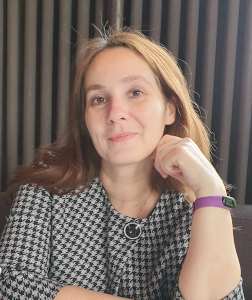
Prof. Dr. Iuliia Pavlova
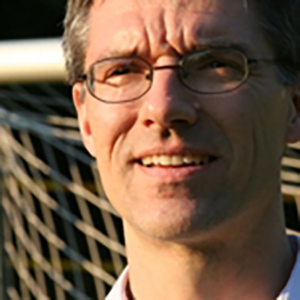
Prof. Dr. Michael Brach
"I would like to share some impressions about the positive things that came out of my participation in the Chance for Science conference. Today I realized that almost 3 months have passed since the Conference, and this time was filled with active scientific work and participation in seminars and workshops.
Almost a few days after the end of the Conference, I received an invitation from the session leader of Conference Prof. Brach to join the ambitious project. This project turned out to be very interesting for me, as it corresponds to my scientific interests and has social significance. Nowadays, I am a member of working groups and am actively involved in solving various tasks according to the project. This allows gaining invaluable experience, as working groups unite highly motivated and influential scientists from different countries, which means constant production of bright ideas and good solutions, and stimulation of personal development. The Conference became that point event that contributed to the beginning of such cooperation, helped me to become a part of a powerful scientific community, work on solving urgent problems and improve my qualifications.
I want to thank you and your team once again for your work, foresight, excellent organization of the Conference, sincere interest in each participant, and creation of opportunities for everyone! I am sincerely glad that I had the opportunity to be among the participants of the Conference!"
Prof. Dr. Iuliia Pavlova
Joint Research Paper: Empirical Analysis of the Effectiveness of different Tax Incentives for Start-Ups
Dr. Svitlana Tarasenko (Sumy State University, Ukraine) & Christopher Seifert (Leipzig University, Germany)
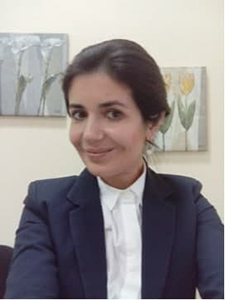
Dr. Svitlana Tarasenko
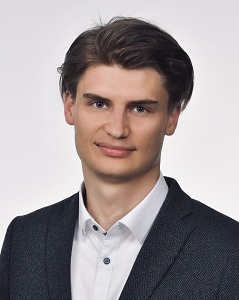
Christopher Seifert
At the first Chance for Science Conference in April Dr. Svitlana Tarasenko (postdoc researcher at Sumy State University, Ukraine) gave a presentation about her previous research regarding industrial policy in context of sustainable development and industry 4.0. Christopher Seifert (PhD-candidate at Universität Leipzig, Germany) participated as a listener at the respective Politics and Economics session.
Together with Prof. Bachmann, the contact was expanded in the weeks subsequent of the conference and a possible joint research area was defined. The scientific research focus of Dr. Tarasenko is, for instance, on industry policy, innovations and international business.
Mr. Seifert focused mainly on application-oriented questions of business taxation. Consequently, possibilities for tax incentives for innovation were identified as a shared intersection of research. Therefore, the two are now working together on an empirical analysis of the effectiveness of different tax incentives for start-ups.
Seminars for undergraduate and graduate Ukrainian students
Dr. Liudmyla Adariukova (Associate Professor, Donetsk National Technical University (Pokrovsk-Lutsk), Ukraine) & Prof. Dr. Roland Happ (Leipzig University, Germany)
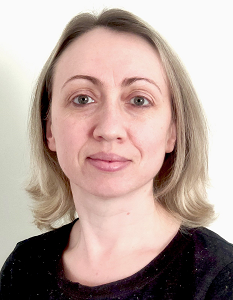
Dr. Liudmyla Adariukova
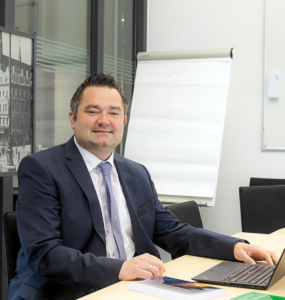
Prof. Dr. Roland Happ
The central challenges of the project are to provide teaching materials that are appropriate for the target group. The materials must be curricularly adapted to the conditions at the Ukrainian institution. At the same time, it is necessary to offer the courses in English and Ukrainian so that all students from Ukraine can participate appropriately in the teaching. Lyudmila Adariukova and Roland Happ are working together on these challenges.
